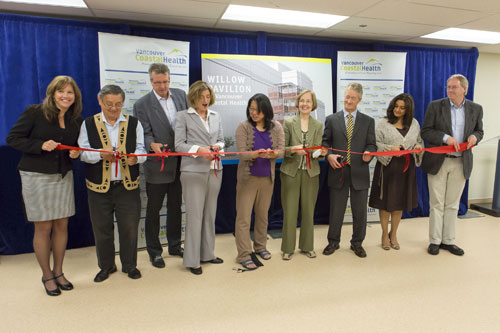I expect many of you have read yesterday’s Vancouver Sun article about incidents of workplace violence involving a former Riverview Hospital patient. Sadly, I can confirm that incidents have occurred in two of our tertiary mental health facilities. Workplace violence at any time and any place is both disturbing and unacceptable. In these circumstances, I find the situation particularly heart-wrenching.
At VCH, we have a zero-tolerance policy on workplace violence. More importantly, we believe action speaks louder than words.
When preparing to transfer Riverview patients, VCH and Riverview staff collaborated to ensure a comprehensive, individualized transfer plan was in place for each and every patient. Do these plans guarantee an incident will never occur? No, but I have faith in our staff’s expertise, experience and professionalism, and I’m confident in the quality of these plans. The same clinical information became part of each patient’s treatment plan provided to receiving VCH staff — many of whom are former Riverview employees. In fact, about 80% of physicians and one-third of staff working in our tertiary mental health sites are former Riverview staff.

Hopes were high for a new beginning when we opened Willow Pavilion, and we have every reason to believe we can achieve our dreams while safeguarding the health and safety of our staff and patients.
Before Willow Pavilion welcomed its first patients in June, we ensured a number of safety precautions were in place or delivered, including:
- extensive staff training – including violence prevention training – specific to tertiary mental health
- appropriate staff-to-client ratios at all times of day and night on every unit
- video monitoring where appropriate
- select units secured round the clock
- personal duress alarms for every employee
- practice of twice-daily safety huddles and monthly drills on every unit
No Band-Aid solutions here
In addition to our Willow Pavilion staff, we’ve identified more than 600 Vancouver mental health inpatient staff for violence prevention training — yes, we found a gap in training and we’re in the process of closing it to ensure current and new hires have the safeguarding skills they need. We’re also conducting risk assessments for 36 mental health sites across VCH to ensure we’re doing everything we can to maximize safety for staff and patients. Recent upgrades at the VGH Health Centre and UBC Hospital’s Detwiller Pavilion are just two examples of the work underway to enhance our facilities’ safety and security.
And, that’s not all. Starting in March 2013 VCH is expanding violence prevention training to high-risk areas outside of mental health, including our Emergency Departments, GF Strong and the Downtown Eastside.
I should also add that VCH has made a commitment to provide violence prevention refresher training every year — no Band-Aid solutions here.
Good is not good enough
I think it’s also important to note that we’re making progress. Since 2005, serious incidents of workplace violence across VCH have decreased by more than 40%. That’s good news but not good enough. One incident is one incident too many.
We anticipate a WorkSafeBC investigation report later this year, which will serve as a learning opportunity to further strengthen our plans. We won’t reach zero overnight, and there are never any guarantees, but we’ll continue to listen and learn from each other — for the sake of our staff, our friends and colleagues and, last but not least, our patients.
Despite recent events, mental illness in the vast majority of cases is treatable, and most people with mental illness can live safely and independently with the proper rehabilitation and support. We are — without a doubt — helping patients heal, and our tertiary mental health staff are dedicated professionals who need both our collective professional and moral support to help them fulfill their important work safely.
